
Our smorgasbord of sumptuous reviews this week includes Dwight Garner on Patricia Lockwood’s Will There Every Be Another You, Mark Athitakis on Matthew McConaughey’s Poems & Prayers, Sarah Chihaya on Susan Choi’s Flashlight, Becca Rothfeld on Tim Berners-Lee’s This Is For Everyone, and Joyce Carol Oates on Samanta Schweblin’s Good and Evil.
Brought to you by Book Marks, Lit Hub’s home for book reviews.
*
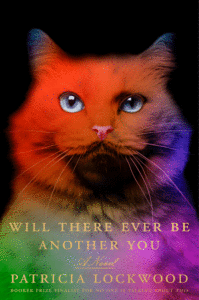
“The insanity has not been edited out. This contributes to the novel’s surrealism and its gently awkward fuzziness—at times it can resemble what mental health professionals like to call a ‘word salad’—and also to its not inconsiderable weight and charm. Will There Ever Be Another You is a pandemic novel, and it conveys the bewilderment its author felt while racked with long Covid.
…
“Will There Ever Be Another You feels like a holding pattern, a string of days between stations, a notebook dump and a fever dream. It is the sound of a writer semi-successfully calling on reserve powers, trying to push through a heavy, befuddling time. I suspect it will divide her many readers. It divided me.
It lacks the sustained barrage of audacities and rascalities that defined her last novel, No One Is Talking About This (2021), which remains one of the best things yet written about online life. In that novel Lockwood managed to come across as a master of the American folk art of kidding (as Dwight Macdonald said of Delmore Schwartz) yet was deadly serious at the same time.
The aphorisms in her new novel are not as keen, and the leaves are not raked into piles. Yet this elliptical book, often best read as poetry, can be involving and moving, and it has sharp spikes of observation. The grief is stirred in slowly. It’s a sickroom meditation; the author becomes a stranger in a strange land.
…
“I have poked and prodded at this book because it’s the sort that invites a reader to do so. It’s a mixed success. But as a member of the rabble that likes to read novels, especially ones by writers so adept, I can’t help remaining committed to following Lockwood where she leads.”
–Dwight Garner on Patricia Lockwood’s Will There Every Be Another You (The New York Times)
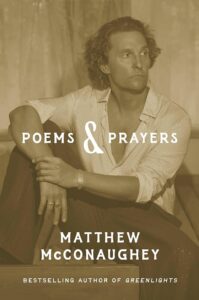
“What is a poem? The actor Matthew McConaughey, who’s written what’s likely to be the best-selling book of poetry published this year, has some thoughts on the matter. Poems are serious: ‘They illuminate belief,’ he writes early in his new book, Poems & Prayers. But they’re also not serious: ‘Poems are a Saturday in the middle of the week.’ That’s McConaughey-brand thinking in a nutshell, fitting for a man who worked hard to get an Oscar but who cruised to success on an earthy, easygoing persona. For him, poems involve some hard thinkin’, but they’re a low-stress way to deal with this business of livin’. How to reconcile the two? Who can say? As he muses early on, ‘It’s all a paradox.’
…
“Poems & Prayers is more of the airy, kinda-helpful-but-kinda-not same [as Greenlights]. Poems can be a lot of things: Studies in imagery and metaphor, attempts to crack open our understanding of what words signify, pathways into subtler emotions, appreciations of nature, human and otherwise. For McConaughey, though, they’re usually just one thing: oracular statements that rhyme.
…
“Are these poems workin’ hard or hardly workin’? To be fair, McConaughey makes no claim to being a serious poet, and the pieces collected in Poems & Prayers evoke the most nakedly populist schools of the form: Beat, cowboy, Insta. But, in typical McConaughey fashion, he doesn’t not take poetry seriously either, and his book is thick with scriptural references and appeals to God. Though the title suggests poems and prayers are separate, he also notes that ‘my prayers are my poems are my prayers.’ (See ‘paradox,’ above.) So while the poems aren’t very good and are sometimes actively bad, stuffed with banalities or forced diction to pull off a rhyme—‘sights are high without tippy a toe’ or ‘A verb of passage not a noun of pro’—there’s no question he means every bit of it.”
–Mark Athitakis on Matthew McConaughey’s Poems & Prayers (The Washington Post)
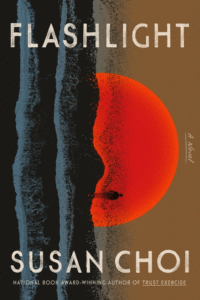
“Susan Choi’s characters are at their best when unhinged. Undone by love, lust, revenge, torture, paranoia, mad hope, hopelessness—this is when they really come to life. Choi’s novels are also at their best in the midst of all of this emotional chaos. Her plots can be melodramatic, plucking these characters seemingly out of nowhere and putting them in the right circumstances to blossom into their maddest selves, but this also gives her novels a certain bravado and, at times, an unexpected grandeur. Choi’s characters need not have rigorous backstories or fully fleshed-out pasts; in fact, the more unmarked and unexplained their arrival, the better. The proximity to such incomprehensible, even unlikable characters is essential for the kinds of studies in desperation that Choi offers: She pulls us into the world of characters we may not particularly like or agree with, sweeping us up into a maelstrom of big, dramatic emotions that makes us wonder if we would comport ourselves in a more
dignified manner, given the same situation.
At least that was the case until now. Choi’s sixth novel, Flashlight, has the makings of another histrionically propulsive book that walks the tightrope between realist novel and melodramatic soap opera with aplomb. Yet where her earlier work—from her flawed but compelling 1998 debut, The Foreign Student, to her 2019 Trust Exercise—is thrillingly chaotic, Flashlight is controlled almost to a fault. At 464 pages, it is Choi’s longest and most ambitious work to date. Flashlight is a serious novel, and by dint of that designation, it tends to focus primarily on serious topics, including (but not limited to) the death of a parent, thwarted family relationships, chronic illness, and North Korean spycraft. There is plenty of intrigue here, but not the messy chaos that made so much of Choi’s earlier work so magnetic.
…
“…her books often have a physicality that verges on the tactile, sometimes unpleasantly so. This is one of the aspects of her writing that I missed in Flashlight. Her novels are best when they’re disagreeably, at times even disturbingly embodied—yet despite its emphasis on the body in pain, the new book is oddly bloodless. Louisa is repelled by her sudden feeling that her ailing mother is ‘an eerie tableau, a waxwork,’ yet that is what the novel itself feels like at times: a Madame Tussaud’s version of the book (or books) it might have been.
…
“…throughout these historical and characterological explorations, one does miss the rawness and rough-cut honesty of Choi’s earlier fiction. Some of the jagged edges, it seems, have been sanded off her work over time—those very jagged edges that made it cut so keenly in the first place. A novel abounding with many novels, Flashlighthas been polished down to a nub—a 464-page nub, but a nub nonetheless. The same impulse toward authorial control and restraint is partly visible in Trust Exercise, which at times also feels too carefully crafted—but by the end of its high-wire second act, we realize this reserve has been in the service of a performance of authorship and domination. By strategically withholding the feelings that we most frequently associate with youthful desire—giddiness, an exhilarating lack of control—Trust Exerciseultimately proves its moral point about what we, as readers and as people, do and do not consent to, with a suitably theatrical flourish.
Flashlight does not conscript its readers as audience members in the same kind of elaborate performance. In a way, one is grateful for Choi’s decision not to conclude her new book with a trick that exposes its apparatus too cleanly. But in a novel so full of different ideas, histories, unanswerable questions, unknowable feelings, insoluble puzzles and mysteries, one feels that everything is resolved in the end with a bit too much control, too much craft and artifice. The antinomies one finds throughout life often get lost in the tangle of plots and half-told stories—here, love does not always come with hate, absurdity with pathos, comedy with tragedy.”
–Sarah Chihaya on Susan Choi’s Flashlight (The Nation)
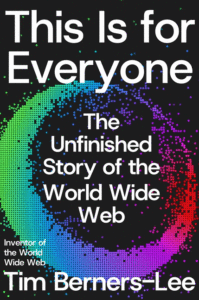
“Of late, I have found myself gravitating toward science fiction franchises that imagine not advanced technology or seamlessly integrated AI, but something even more improbable and futuristic: a world free from the distractions and degradations of the internet. It may seem perverse to seek solace in Dune and Battlestar Galactica, fictions about societies that have been ravaged by war and genocide, but characters in both stories are treated to a significant silver lining: After catastrophic brushes with sentient computers, they have sworn off connectivity altogether. However vicious their political infighting and however tyrannical their leaders, they are still spared Andrew Tate videos and QAnon posts.
At its worst, the web is a putrid miasma of neo-Nazi trolls, misinformation and AI-generated slop; at its best, it shreds our attention into little scraps. The question is not whether online life is wretched—it is—but whether it was always so depraved, and whether its depravity is a fait accompli. Tim Berners-Lee, the inventor of the World Wide Web, doesn’t think so . . . it doesn’t have to be this way, he insists. The web was once a tolerant, welcoming and slightly anarchic place, and Berners-Lee assures us that it can be salvaged yet. He is such an affable, avuncular narrator that I am almost tempted to believe him.
…
“Berners-Lee’s decision to make the web public was characteristic; throughout his career, he has been a mensch. Instead of working in industry and making a killing, he opted for a more modest salary in the computer science department at MIT, and he is the founder of the World Wide Web Consortium, a body that attempts to ensure that all web programs are interoperable and that the internet remains free. Unlike so many of his peers in Silicon Valley, Berners-Lee admits to being a human being with human interests…
…
“It is no surprise that This Is for Everyone is vastly less irritating than most books by tech boosters. In place of the usual tics—the uncritical fetishization of AI, the insistence that technological advances will serve as a panacea, and the accompanying refusal to engage with political or philosophical questions—Berners-Lee is quite explicit that social conditions shape how technologies are deployed. He knows better than anyone that ‘the free, open access communications paradigm we have did not arrive like magic. It was the product of a fair amount of political wrangling,’ much of which he is responsible for. His vision for returning the web to its more democratic roots is humane and endearing—but is it realistic?”
–Becca Rothfeld on Tim Berners-Lee’s This Is For Everyone: The Unfinished Story of the World Wide Web (The Washington Post)
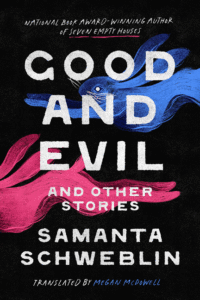
“Good and Evil is an unexpectedly generic title for a collection so imbued with the ambiguities and ironies of domestic life, in which the absolutes of ‘good’ and ‘evil’ scarcely figure. It is not moral conflict but the overwhelming pressure of family life that drives the characters—mothers, wives, daughters—to existential breakdowns.
…
“As with Fever Dream, an all-too-realistic eco-horror tale set in an environmental disaster zone, Schweblin builds suspense in these stories by highlighting the vulnerability of children and the need to protect them, a responsibility that weighs particularly heavily upon mothers.
…
“The women protagonists of these stories sometimes alienate themselves from those closest to them, only to be confronted by men who speak to them with the intimate audacity of dream figures or shamans. The armor that protects these women from familial feeling is pierced by strangers who intervene dramatically in their lives.
…
“Beautifully translated by Megan McDowell, in prose that shimmers with a sort of menacing lyricism, the stories of Good and Evil are powerfully evocative and unsettling. They seem to hover, indeed like fever dreams, between the reassuring familiarities of domestic life and the stark, unpredictable, visionary flights of the unconscious. Everything exists in a state of tension, charged with contradictions. The protagonist of the final story discovers in herself an unexpected appetite for the breakfast her mysterious animus-stranger has prepared for her as a parting gift: ‘She picked up the fork and took a bite, and then another, and another. She had to finish the plate before she grasped just how hungry she was.’”
–Joyce Carol Oates on Samanta Schweblin’s Good and Evil (The New York Times Book Review)


























